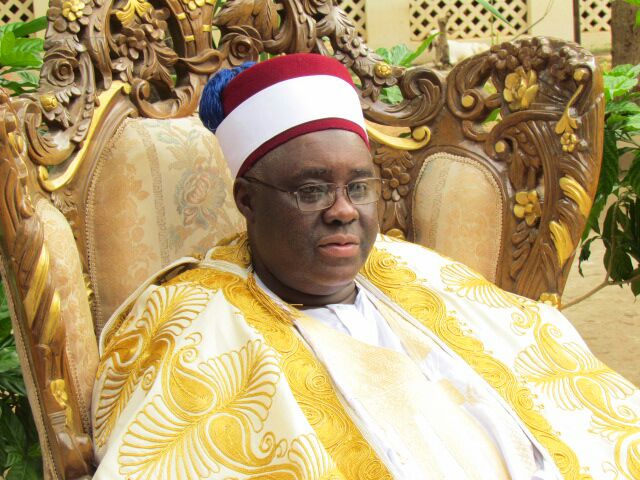Guardians of Heritage, Champions of Progress: Meet the traditional Emirs shaping Yobe’s future
In Yobe State, the voices of tradition and progress harmonize through its esteemed council of traditional rulers. These emirs, with centuries-old histories behind them, stand as pillars in their communities, guiding their people through both the past’s wisdom and the challenges of today. Each emir’s unique contribution enriches the fabric of Yobe, blending cultural preservation with social and economic progress.
Here, we journey through the esteemed ranks of Yobe’s traditional rulers, celebrating their leadership, resilience, and vision for a brighter future.
1. Alhaji (Dr.) Muhammadu Ibn Abali Muhammadu Idrissa – Emir of Fika, Potiskum
Chairman of the State’s Council of Chiefs, as the highest-ranking Emir and Chairman of Yobe’s Council of Chiefs, Alhaji Muhammadu Idrissa is a beacon of peace and progress. Known for his dedication to fostering inter-community harmony, he also supports healthcare and development, making him a beloved figure in Potiskum and beyond.
2. Alhaji Abubakar Umar Suleiman – Emir of Bade, Gashua
Vice Chairman of the State’s Council of Chiefs, Alhaji Abubakar Umar Suleiman champions unity and youth empowerment in Gashua. His passion for education and community advancement shines through his support for initiatives that uplift young people and inspire cooperation.
3. Alhaji Shehu Hashimi II Ibn Umar El-Kanemi – Emir of Damaturu, Damaturu
Based in the capital, Emir Hashimi II is a forward-thinking leader advocating for both urban and rural development. His contributions to education and social welfare have strengthened community resilience, uniting the capital with the surrounding areas.
4. Alhaji Bashir Albishir Bukar Machinama – Emir of Machina, Machina
Renowned for his commitment to preserving cultural traditions, Alhaji Bashir Albishir Bukar actively supports trade and development projects. His efforts in Machina reflect his vision for a connected and thriving emirate.
5. Alhaji Mai Ali Ibrahim – Emir of Ngazargamo, Geidam
Alhaji Mai Ali Ibrahim stands as a custodian of historical legacy, blending the rich cultural heritage of Ngazargamo with initiatives that promote peace and social unity. His contributions are central to the vibrancy of Geidam’s community life.
6. Alhaji Mai Mukhtar Ibn Ali Gangarang – Emir of Gujba, Buni Yadi
The Emir of Gujba, Alhaji Mukhtar Gangarang, is devoted to ensuring social stability and welfare in his emirate. His leadership is crucial in promoting education and community support, particularly in times of regional hardship.
7. Alhaji Mustapha Ibn Kyari Ibn Umar El-Kanemi – Emir of Nguru, Nguru
Alhaji Mustapha Ibn Kyari’s emphasis on preserving Nguru’s historical legacy enriches his leadership. His focus on cultural heritage and social development resonates deeply with his people, who view him as a bridge between past and future.
8. Alhaji Muhammad Abubakar Ibn Grema – Emir Tikau, Sabon Garin Nangere
Embracing both tradition and progress, Alhaji Muhammad Abubakar Ibn Grema promotes local education and economic empowerment. His influence encourages his people to uphold their heritage while adapting to modern opportunities.
9. Alhaji Umaru Bubaram Ibn Wuriwa Bauya – Emir of Pataskum, Yerimaram
A dedicated advocate for youth, Alhaji Umaru Bubaram focuses on educational initiatives that equip young people with skills and values. His leadership bridges cultural heritage with the necessities of today’s world.
10. Alhaji Muhammad Ibn Zannah Zakariya – Emir of Yusufari, Yusufari
Committed to agricultural sustainability, Alhaji Muhammad Ibn Zannah Zakariya fosters environmental stewardship. His initiatives highlight Yusufari’s agricultural roots, balancing tradition with sustainable growth.
11. Alhaji Isa Ibn Bunuwo Mashio – Emir of Gudi, Gadaka
Alhaji Isa Mashio’s work in Gudi emphasizes social cohesion and access to education and healthcare. His commitment to community welfare strengthens bonds among his people, creating a harmonious environment in Gadaka.
12. Alhaji Saleh Ibn Muhammadu – Emir of Fune, Damagum
The Emir of Fune, Alhaji Saleh Ibn Muhammadu, is deeply invested in healthcare advocacy. His leadership prioritizes physical and social well-being, making a lasting impact on Damagum’s community.
READ ALSO: National leaders gather in Kaduna, pay last respect to late Adamu Wazirin Fika (pictures)
13. Mai Hamza Ibn Buba Mashio – Emir of Jajere, Babban Gida
Focused on education and cultural preservation, Alhaji Mai Hamza Ibn Buba supports initiatives that integrate tradition with modern knowledge. His influence empowers Babban Gida’s youth, giving them tools to succeed.
14. Alhaji Muhammadu Ibn Mai Filibus – Emir of Ngelzarma, Ngelzarma
The Emir of Ngelzarma, Alhaji Muhammadu Ibn Mai Filibus, safeguards his emirate’s identity, advocating for projects that uplift local livelihoods. His efforts reflect his deep commitment to community-based development.
Conclusion
These leaders, through their resilience and wisdom, shape Yobe’s identity and ensure its heritage endures. Each emir’s role transcends tradition, as they continuously inspire growth, unity, and hope for future generations. Together, they represent a Yobe that honors the past while advancing confidently into the future, showing that true leadership bridges the richness of history with the promise of tomorrow.
Follow the Neptune Prime channel on WhatsApp:
Do you have breaking news, interview request, opinion, suggestion, or want your event covered? Email us at neptuneprime2233@gmail.com





